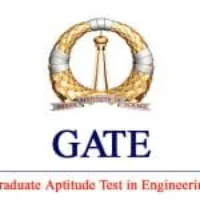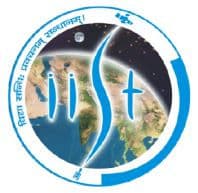Latest Applications Open 2024:
GATE 2025 Syllabus of Biotechnology has been Released Now. Graduate Aptitude Test in Engineering (GATE 2025) is an examination that primarily tests the comprehensive understanding of the candidates in various undergraduate subjects in Engineering/ Technology/ Architecture and postgraduate level subjects in Science.
The GATE 2025 score of a candidate reflects a relative performance level in a particular subject in the examination across several years. IIT Roorkee conducts the GATE 2025 Exam.
The score is used for admissions to post-graduate programs (e.g., M.E./M.Tech/ Direct PhD) in centrally funded Indian Institutes of higher education (i.e., Institutes that are provided with financial assistance by MHRD and other Government agencies).
GATE 2025 Biotechnology Syllabus – PDF Released
GATE 2025 Biotechnology Syllabus has been Released Now. Click to Download the GATE Biotechnology Syllabus in PDf.
Section 1: Engineering Mathematics
Linear Algebra: Matrices and Determinants, Systems of linear equations, Eigenvalues and Eigenvectors. Calculus: Limit, continuity and differentiability, Partial derivatives, Maxima and minima, Sequences and series, Test for convergence, Fourier Series. Differential Equations: Linear and nonlinear first-order ODEs, higher-order ODEs with constant coefficients, Cauchy’s and Euler’s equations, Laplace transforms, PDE-Laplace, heat and wave equations. Probability and Statistics: Mean, median, mode and standard deviation, Random variables, Poisson, normal and binomial distributions, Correlation, and regression analysis. Numerical Methods: Solution of linear and nonlinear algebraic equations, Integration of trapezoidal and Simpson’s rule, Single and multistep methods for differential equations.
Section 2: General Biotechnology
Biochemistry: Biomolecules-structure and functions; Biological membranes, structure, action potential and transport processes; Enzymes- classification, kinetics, and mechanism of action; Basic concepts and designs of metabolism (carbohydrates, lipids, amino acids, and nucleic acids) photosynthesis, respiration and electron transport chain; Bioenergetics
Microbiology: Viruses- structure and classification; Microbial classification and
diversity(bacterial, algal and fungal); Methods in microbiology; Microbial growth and nutrition; Aerobic and anaerobic respiration; Nitrogen fixation; Microbial diseases and host-pathogen interaction
Cell Biology: Prokaryotic and eukaryotic cell structure; Cell cycle and cell growth control; Cell-Cell communication, Cell signalling, and signal transduction
Molecular Biology and Genetics: Molecular structure of genes and chromosomes; Mutations and mutagenesis; Nucleic acid replication, transcription, translation, and their regulatory mechanisms in prokaryotes and eukaryotes; Mendelian inheritance; Gene interaction; Complementation; Linkage, recombination, and chromosome mapping; Extrachromosomal inheritance; Microbial genetics (plasmids, transformation, transduction, conjugation); Horizontal gene transfer and Transposable elements; RNA interference; DNA damage and repair; Chromosomal variation; Molecular basis of genetic diseases
Analytical Techniques: Principles of microscopy-light, electron, fluorescent and confocal; Centrifugation- high speed and ultra; Principles of spectroscopy-UV, visible, CD, IR, FTIR, Raman, MS, NMR; Principles of chromatography- ion exchange, gel filtration, hydrophobic interaction, affinity, GC, HPLC, FPLC; Electrophoresis; Microarray
Immunology: History of Immunology; Innate, humoral and cell-mediated immunity; Antigen; Antibody structure and function; Molecular basis of antibody diversity; Synthesis of antibody and secretion; Antigen-antibody reaction; Complement; Primary and secondary lymphoid organ; B and T cells and macrophages; Major histocompatibility complex (MHC); Antigen processing and presentation; Polyclonal and monoclonal antibody; Regulation of immune response; Immune tolerance; Hypersensitivity; Autoimmunity; Graft versus host reaction.
Bioinformatics: Major bioinformatic resources and search tools; Sequence and structure databases; Sequence analysis (biomolecular sequence file formats, scoring matrices, sequence alignment, phylogeny); Data mining and analytical tools for genomic and
proteomic studies; Molecular dynamics and simulations (basic concepts including force fields, protein-protein, protein-nucleic acid, protein-ligand interaction)
Section 3: Recombinant DNA Technology
Restriction and modification enzymes; Vectors; plasmid, bacteriophage, and other viral vectors, cosmids, Ti plasmid, yeast artificial chromosome; mammalian and plant expression vectors; cDNA and genomic DNA library; Gene isolation, cloning, and expression; Transposons and gene targeting; DNA labelling; DNA sequencing; Polymerase chain reactions; DNA fingerprinting; Southern and northern blotting; In-situ hybridization; RAPD, RFLP; Site-directed mutagenesis; Gene transfer technologies; Gene therapy
Section 4: Plant & Animal Biotechnology
Totipotency; Regeneration of plants; Plant growth regulators and elicitors; Tissue culture and Cell suspension culture system: methodology, the kinetics of growth and, nutrient optimization; Production of secondary metabolites by plant suspension cultures; Hairy root culture; transgenic plants; Plant products of industrial importance
Animal cell culture; media composition and growth conditions; Animal cell and tissue preservation; Anchorage and non-anchorage dependent cell culture; Kinetics of cell growth; Micro & macro-carrier culture; Hybridoma technology; Stem cell technology; Animal cloning; Transgenic animals
Section 5: Bioprocess Engineering & Process Biotechnology
Chemical engineering principles applied to a biological system, Principle of reactor design, ideal and non-ideal multiphase bioreactors, mass and heat transfer; Rheology of fermentation fluids, Aeration, and agitation; Media formulation and optimization; Kinetics of microbial growth, substrate utilization and product formation; Sterilization of air and media; Batch, fed-batch and continuous processes; Various types of microbial and enzyme reactors; Instrumentation control and optimization; Unit operations in solid-liquid separation and liquid-liquid extraction; Process scale-up, economics, and feasibility analysis
Engineering principle of bioprocessing- Upstream production and downstream; Bioprocess design and development from lab to industrial scale; Microbial, animal and plant cell culture platforms; Production of biomass and primary/secondary metabolites; Biofuels, Bioplastics, industrial enzymes, antibiotics; Large-scale production and purification of recombinant proteins; Industrial application of chromatographic and membrane-based bioseparation methods; Immobilization of biocatalysts (enzymes and cells) for bioconversion processes; Bioremediation-Aerobic and anaerobic processes for stabilization of solid/liquid wastes
Other GATE Related Syllabus PDF
| Syllabus | Code | Syllabus | Code |
| Data Science & Artificial Intelligence | (DA) | Mathematics | (MA) |
| Agricultural Engineering | (AG) | Civil Engineering | (CE) |
| Architecture and Planning | (AR) | Chemical Engineering | (CH) |
| Computer Science and Information Technology | (CS &IT) | Chemistry | (CY) |
| Electronics and Communication Engineering | (EC) | Electrical Engineering | (EE) |
If you any queries regarding the GATE 2025 Biotechnology Syllabus, you can ask your query and leave comments below.

As a dedicated Biology Science graduate, I’m passionate about sharing the latest updates in national and state entrance exams through my blog. I aim to keep aspiring students informed about exam trends, important dates, and changes in syllabi. With a keen interest in education, I strive to offer valuable insights for students navigating the competitive landscape of entrance examinations and admission tests. Stay updated with me.


